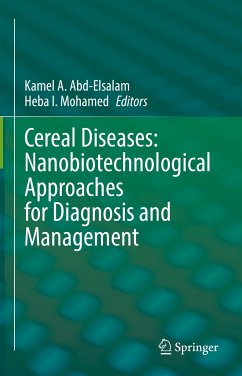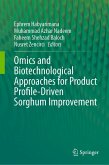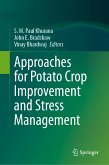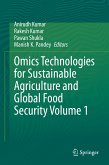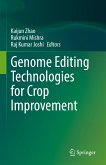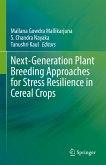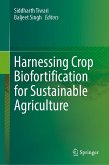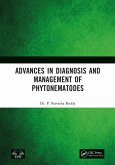New ways to improve cereal crops against fungal, bacterial, and viral diseases are covered in this book that was put together by a group of experts. These include genetics, genome editing systems, and nano-biotechnological tools. Cereal crops are mainly the world's leading food crops and feed a large share of the world population. However, external factors, such as pathogens, have often threatened their productivity. Like wheat, rice, maize, oats, barley, millet and storage, etiology, epidemiology, and diseases in cereal crop management. In addition, the importance of crop genetics and genomics in combating pathogens has been discussed. This book offers up-to-date information on new methods, such as the potential of the genome editing system for crop improvement, in particular the CRISPR-Cas system. The current volume also talks about identification, plant breeding, genome editing, and nanotechnology tools that can be used to fight disease in cereal crops. This book is good for students, teachers, and researchers who study biotic stress in cereals, as well as scientists who study nanotechnology, disease resistance, pathogen biology, genome editing, agriculture sciences, and future biotechnology.
Dieser Download kann aus rechtlichen Gründen nur mit Rechnungsadresse in A, B, BG, CY, CZ, D, DK, EW, E, FIN, F, GR, HR, H, IRL, I, LT, L, LR, M, NL, PL, P, R, S, SLO, SK ausgeliefert werden.

